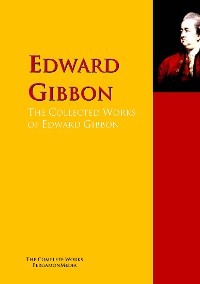 полная версия
полная версияPrivate Letters of Edward Gibbon (1753-1794) Volume 1 (of 2)
I have seen Dr. Maty. La La. He made little or no excuse for having deferred writing, but has already criticised it with sense and severity. He finds it as I hoped; good, in general, but many faults in the detail.[23]
I have dined once with M. Cilesia, with whom I am extremely pleased; he has wit and learning, and speaks French like a Parisian. But pray have you heard the shocking pretensions of Mlle. de Vaucluse? A prior marriage with him, or at least a promise of Marriage with a vast forfeiture. I do not know the particulars, but she pushes the affair vigorously at Genoa, and disperses a Memoire, which I hope to see. If she is not an Imposture, how criminal it makes the husband and how unhappy the wife.
I believe it is needless to assure Mrs. Gibbon of my sincerest love and regard. Pray tell her Sir W. Milner is in town. I shall execute all her and your commissions.
I am, Dear Sir,With the greatest regard,Your most obedient and affectionate servant and son,E. Gibbon.16.
To his Father
New Bond Street, December the 30th, 1758.Dear Sir,
HIS FIRST LITERARY VENTURE
Your illness really alarmed me. To be taken in so sudden and violent a manner. If you had not assured me that you was so much better, I would have set out immediately for Beriton. I hope you have had some advice better than Harvey's. I hope too that Mrs. Gibbon tries to hinder you from going out in the cold. I say tries, because I know that with regard to going out you are a most ungovernable patient.
At last Maty and I have downright quarrelled. He behaved so very contemptuously to me. Never made the least excuse for having eked out two weeks into two months, left two letters I wrote him since, without any answers, never came near me, that at last I desired him to send back my manuscript. He did so. I then wrote him a letter to explain my behaviour. He answered it by another politely bitter. So tout est fini!
I return you, Dear Sir, my sincerest thanks for telling me of my faults. I shall always consider it the truest proof of your affection for me. I hope you do not impute my not writing to Mrs. Gibbon to the least want of regard for her. I should be the most ungrateful of men, if I did not love and respect her like my own mother. But I really thought that in a union like yours, writing to one was writing to both. However, dear Sir, it is enough that you think it an omission, for me to repair it by the very next post.
I endeavour to see no company in town but such as you yourself would approve of. Mrs. Cilesia's and Mrs. Hayes's are the two houses I frequent the most. The former has promised to introduce me to Lady Harvey's[24] Assembly, where ('tis true though wonderful) there is no card-playing, but very good company and very good conversation. I am also to meet at Mrs. Cilesia's the great David Hume. I shall seek his acquaintance without being discouraged by Maty.
I have answered Bordot's letter. He desires a present relief, a quick release, and a good place in England. The first alone is in my power. I beg you would give him Five Guineas and deduct it upon the Christmas quarter of my Allowance. I do not doubt but you will do something for him, as I really think his situation deserves pity. This cessation of the prisoner's allowance shows, I think, better than fifty monitors to how low an ebb the French are reduced. I cannot help pitying them too. I do not think it necessary to have no compassion, in order to be a good Englishman. My unfashionable politicks are that a war can hardly be a good one, and a peace hardly a bad one. My sincerest love and regard wait upon Mrs. Gibbon.
I am, Dear Sir,With the highest regard and best wishes for your healthYour most affectionate son and humble servant,(E.) Gibbon.
P.S. – The Barometer was broke on the road. You will lay it upon me. I lay it upon François, and François upon Henry who packed up the things. Shall I buy another? Numbers 15553, 15554 Blanks.
17.
To his Father
1760.Dear Sir,
*An address in writing, from a person who has the pleasure of being with you every day, may appear singular. However, I have preferred this method, as upon paper I can speak without a blush, and be heard without interruption. If my letter displeases you, impute it, Dear Sir, only to yourself. You have treated me not like a son, but like a friend. Can you be surprized that I should communicate to a friend all my thoughts, and all my desires? Unless the friend approve them, let the father never know them; or, at least, let him know at the same time, that however reasonable, however eligible, my scheme may appear to me, I would rather forget it for ever, than cause him the slightest uneasiness.
UNFITNESS FOR POLITICAL LIFE.
When I first returned to England, attentive to my future interest, you were so good as to give me hopes of a seat in Parliament. This seat, according to the Custom of our venal country, was to be bought, and fifteen hundred pounds were mentioned as the price of the purchase. This design flattered my vanity, as it might enable me to shine in so august an assembly. It flattered a nobler passion; I promised myself that by the means of this seat I might be one day the instrument of some good to my country. But I soon perceived how little a mere virtuous inclination, unasisted by talents, could contribute towards that great end; and a very short examination discovered to me, that those talents were not fallen to my lot. Do not, Dear Sir, impute this declaration to a false modesty, the meanest species of pride. Whatever else I may be ignorant of, I think I know myself, and shall always endeavour to mention my good qualities without vanity, and my defects without repugnance. I shall say nothing of the most intimate acquaintance with his country and language, so absolutely necessary to every Senator. Since they may be acquired, to alledge my deficiency in them, would seem only the plea of laziness. But I shall say with great truth, that I never possessed that gift of speach, the first requisite of an Orator, which use and labour may improve, but which nature can alone bestow. That my temper, quiet, retired, somewhat reserved, could neither acquire popularity, bear up against opposition, nor mix with ease in the crowds of public life. That even my genius (if you will allow me any) is better qualified for the deliberate compositions of the Closet, than for the extemporary discourses of the Parliament. An unexpected objection would disconcert me; and as I am incapable of explaining to others what I do not thoroughly understand myself, I should be meditating, while I ought to be answering. I even want necessary prejudices of party, and of nation. In popular assemblies, it is often necessary to inspire them; and never Orator inspired well a passion, which he did not feel himself. Suppose me even mistaken in my own Character; to set out with the repugnance such an opinion must produce, offers but an indifferent prospect. But I hear you say It is not necessary that every man should enter into Parliament with such exalted hopes. It is to acquire a title the most glorious of any in a free country, and to employ the weight and consideration It gives in the service of one's friends. Such motifs, tho' not glorious, yet are not dishonourable; and if we had a borough in our command, if you could bring me in without any great expence, or if our fortune enabled us to dispise that expence, then indeed I should think them of the greatest strength. But with our private fortune is it worth while to purchase at so high a rate, a title, honourable in itself, but which I must share with every fellow that can lay out Fifteen hundred pounds? Besides, Dear Sir, a merchandize is of little value to the owner, when he is resolved not to sell it.
I should affront your penetration, did I not suppose you now see the drift of this letter. It is to appropriate to another use the sum you destined to bring me into Parliament; to employ it, not in making me great, but in rendering me happy. I have often heard you say yourself, that the allowance you had been so indulgent as to grant me, tho' very liberal in regard to your estate, was yet but small, when compared with the almost necessary extravagances of the age. I have indeed found it so, notwithstanding a good deal of œconomy, and an exemption from many of the common expences of youth. This, Dear Sir, would be a way of supplying these deficiencies, without any additional expence to you. – But I forbear. – If you think my proposals reasonable, you want no entreaties to engage you to comply with them; if otherwise, all will be without effect.
All that I am afraid of, Dear Sir, is, that I should seem not so much asking a favour, as this really is, as exacting a debt. After all I can say, you will still remain the best judge of my good, and your own circumstances. Perhaps, like most Landed Gentlemen, an addition to my annuity would suit you better than a sum of money given at once. Perhaps the sum itself may be too considerable. Whatever you shall think proper to bestow upon me, or in whatever manner, will be received with equal gratitude.
I intended to stop here; but as I abhor the least appearance of art, I think it will be better to lay open my whole scheme at once. The unhappy War which now desolates Europe, will oblige me to defer seeing France till a peace. But that reason can have no influence upon Italy, a country which every Scholar must long to see; should you grant my request, and not disaprove of my manner of employing your bounty, I would leave England this autumn, and pass the winter at Lausanne, with M. de Voltaire and my old friends. The armies no longer obstruct my passage, and it must be indifferent to you, whether I am at Lausanne or at London during the winter, since I shall not be at Beriton. In the spring I would cross the Alps, and after some stay in Italy, as the war must then be terminated, return home thro' France, to live happily with you and my dear Mother. I am now two or three and twenty; a tour must take up a considerable time, and tho' I believe you have no thoughts of settling me soon, (and I am sure I have not) yet so many things may intervene, that the man who does not travel early, runs a great risk of not travelling at all. But this part of my scheme, as well as the whole, I submit entirely to you.
Permit me, Dear Sir, to add, that I do not know whether the compleat compliance with my wishes could encrease my love and gratitude; but that I am very sure, no refusal could minish those sentiments with which I shall always remain, Dear Sir, your most dutiful and obedient son and servant,*
E. Gibbon, Junior.18.
To his Stepmother
Winchester Camp,[25] Monday Morning,[in pencil] '61?Dear Madam,
A CAPTAIN OF MILITIA.
I have got four dozen of Franks for you from Sir Gerard Napier, which I shall send you by return of the waggon. In return I must beg the favor of a book. It is Greek, but don't be frightened; you may easily find it. It is a short but very thick folio, bound in parchment, the title on the back in large letters, either Strabo, or Strabonis Geographia, printed in two columns, one Greek, the other Latin. I am pretty sure it is upon the couch. I hope you like the Devizes; the place is good, & I think the neighbourhood to Bath no objection. I hope soon to meet you there, and am,
Dear Madam,Yours most affectionately,E. Gibbon, Junior.19.
To his Stepmother
Devizes, February the 14th, 1762.Dear Madam,
Knowing you as I do I can easily judge of the effect my father's accident must have produced upon you. Besides, I can guess at it by the impression it made upon me, though I heard of the danger and the escape at the same time. I thank God it was no worse. I hope my father is now thoroughly recovered. I shall remember the Arquebusade this week.
Of myself and my situation at the Devizes I have little to say, and that little not very agreeable. A great deal of noise and no conversation, a great many people and no society, a most excessive familiarity and no friendship; in a word, the usual scene, only I think we are not so quarrelsome as we used to be.
I wrote to my father who by this time must have received my letter. However I must just mention to him two or three things relative to the battalion. He will see by the enclosed return, our strength and what we have done, which is nothing to what we might do had we money. The Blacks[26] now grow so numerous that I think they must drive us out of town, they desire it so strongly, & Lord Shelbourne[27] has such powerful interest. I believe Sharrock[28] will get an ensign, one Hall,[29] near this place, a very pretty lad of sixteen with a good qualification, though not in our county. He expects an answer from Durnford, who, by the bye, has not yet wrote either to Harrison[30] or me.
How does your pupil go on? I hope soon to have an account of him, as William is very clamourous for a new livery.
You say nothing of your brother. I hope he is sailed. Surely it must by this time be determined. I beg you would present my love and duty to my father, and believe me,
Dear Madam,Most affectionately yours,E. Gibbon, Junior.20.
To his Father
Boulogne, January the 25th, 1763.Dear Sir,
FOREIGN TOUR.
*You see by the date of my letter where I am. I arrived here in company with the Duke of Bridgewater,[31] the Marquis of Tavistock,[32] Lord Ossory[33] and a Mr. Leigh, about three in the afternoon, after a tedious but pleasant passage of about nine hours. We were forced to come in here, not being able to make Calais. I have hired a chaise, & propose setting out to-morrow, but alone, as the road will not supply horses for our number. I hope to be at Paris either Thursday or Friday. Writing in the midst of noise and hurry & being just ready to go to supper, you will excuse my ending abruptly.*
I am, Dear Sir,Yours most affectionately,E. Gibbon.21.
To his Stepmother
Paris, February the 12th, 1763.Dear Madam,
You remember our agreement; short and frequent letters. The first part of the treaty you have no doubt of my observing: I think I ought not to leave you any of the second. À propos of treaty,[34] our definitive one was signed here yesterday, and this morning the Duke of Bridgewater and Mr. Neville[35] went for London with the news of it. The plenipotentiaries sat up till ten o'Clock in the morning at the ambassador of Spain's ball, and then went to sign this treaty which regulates the fate of Europe.
PARISIAN SOCIETY.
Paris in most respects, has fully answered my expectations. I have a number of very good acquaintances which encrease every day, for nothing is so easy as the making them here. Instead of complaining of the want of them, I begin already to think of making a choice. Next Sunday for instance I have only three invitations to Dinner. Either in the houses you are already acquainted, you meet with people who ask you to come and see them, or some of your friends offer themselves to introduce you. When I speak of these connections, I mean chiefly for dinner & the evening. Suppers, as yet I am pretty much a stranger to, and I fancy shall continue so: for Paris is divided into two Species who have but little communication with each other. The one who is chiefly connected with the men of letters dine very much at home, are glad to see their friends, and pass the evenings till about nine in agreable and rational conversation. The others are the most fashionable, sup in numerous parties, and always play or rather game both before and after supper. You may easily guess which sort suits me best. Indeed, Madam, we may say what we please of the frivolity of the French, but I do assure you that in a fortnight passed at Paris I have heard more conversation worth remembering, and seen more men of letters among the people of fashion, than I had done in two or three winters in London.
Amongst my acquaintance I cannot help mentioning M. Helvetius,[36] the author of the famous book de l'Esprit. I met him at dinner at Madame Geoffrin's,[37] where he took great notice of me, made me a visit next day, & has ever since treated me not in a polite but a friendly manner. Besides being a sensible man an agreable companion, & the worthiest creature in the world He has a very pretty wife, a hundred thousand Livres a year and one of the best tables in Paris. The only thing I dislike in him is his great attachment to and admiration for Stanley,[38] whose character is indeed at Paris beyond any thing you can conceive. To the great civility of this foreigner, who was not obliged to take the least notice of me, I must just contrast the behaviour of the D. of B.[39] I could not see him (on account of his gout) till last Sunday. I was then introduced to him & presented my letter from the D[uke] of R[ichmond].[40] He received me civilly, desired I would apply to him whenever I wanted his assistance, and thus dismissed me. I have not heard of him since. Indeed I have often blushed for him, for I find his stateliness and avarice make him the joke of Paris. Instead of keeping any thing of a publick table, he hardly ever asks any body; while the Spaniard[41] gives balls every week, the magnificence of which is only exceeded by their politeness & elegance. Neville who is exactly Mr. W. Patton[42] received me very well, but seemed to laugh both at Mallet & his letter of recommendation.
I beg my duty to my father to whom I propose writing next week, and my most sincere compliments to the two Gentlemen.
I am, Dear Madam,Most affectionately yours,E. Gibbon, Junior, alias de Guibon.22.
To his Stepmother
Paris, March the 25th, 1763.Dear Madam,
I am afraid (as dates are stubborn things) that I have been rather too lazy. As you love truth, and know me, I will not attempt an awkward apology, but shall only say, that I will endeavor such a delay shall not happen a second time. My father has more extensive priviledges, and indeed he seems to be very well acquainted with them.
FRIENDS IN PARIS
I still continue to like Paris, as well as I expected. You know that is saying a great deal. In two months I am acquainted with more, (and more agreable) people, than I knew in London in two years. Indeed the way of life is quite different. Much less play, more conversation, and instead of our immense routs, agreable societies where you know and are known by almost every body you meet. I have added several families to those I have already mentioned to you, and I find my conquests multiply every day. With regard to Mrs. M.'s son,[43] I am glad to see that for once she has not exagerated; indeed she hardly could in speaking of him. We are now very intimate, & I think I begin to know his character. It is astonishing for a young French officer of the Guards. He is as reserved, as little a man of the world, and as awkward as I can be. But he has a fine natural understanding, improved upon almost every subject, a clear unprejudiced head, and a heart which seems to be full of the noblest sentiments of honor, probity and friendship. I will not decide too hastily, but I believe and hope that I am forming a connection which will last as long as my life. We see one another very often, and in most of my visits of curiosity he generally accompagnies me. These parties are of service to us both. I improve by the communication of his remarks, and he has occasion to see twenty places which he would perhaps not have seen for the too common reason, that they were in the place he had passed all his life in. The only unlucky circumstance is, that he has no women in his family. A Wife or a sister are, you know, most usefull and convenient things to bring friends together, whereas we are both single; he in his cousin's house, I in a lodging; and in this great town, are both obliged to get our living, which prevents our meeting so often as we could wish. Madame Bontems[44] is a very good sort of a woman, agreable and sans pretensions. She seems to have conceived a real motherly attachment for me. I generally sup there three or four times a week quite in a friendly way.
I have nothing new to say of his Excellency. I have not seen him since my last letter, and but once in all. Not a single invitation either general or particular, and tho' I have made it a rule to leave my name at the door, at proper intervalls, I have never been lett in. The behavior is so very singular (especially with such a recommendation as mine) that I am sometimes tempted to think, some ill offices must have been done me. Not that I am conscious of any thing wrong or even imprudent in my behaviour. On the contrary, whenever I have heard the D.'s manner of living here blamed and laughed at, I have always thought it right to try to justify him, even against my own conscience. Indeed I am sorry, for the honor of my country to see how contemptible a figure he makes amongst our late enemies and constant rivals. My only comfort is that the National character is as much revered as his is despised. What Cromwell wished is now litterally the case. The name of Englishman inspires as great an idea at Paris as that of Roman could at Carthage, after the defeat of Hannibal. Indeed the French are almost excessive. From being very unjustly esteemed a set of pirates and Barbarians, we are now, by a more agreable injustice, looked upon as a nation of Philosophers and Patriots. I wish we would consider this opinion as an encouragement to deserve a character, which I am afraid we have not yet attained. I could add many things (some curious enough) with regard to the reigning politicks and publick affairs; but I have no occasion to say why it is much better to talk them over in your Dressing room some time hence. Perhaps I have even said too much already.
PARIS AND LONDON CONTRASTED.
With regard to Paris itself, I mean the houses and buildings, you know very well that their people of fashion are incomparably better lodged there than in London. Their vast Hotels, courts, stables, gardens, are very magnificent as well as convenient. A striking proof of the difference is the situation of our Embassador. He is full as well if not better lodged, in the Rue St. Dominique, than in Bloomsbury Square. However, his own house is reckoned one of the very best in London, and his hired one here is, both as to size, beauty and price, far inferior to a great many, even of that class, at Paris. Indeed I take the article of house rent to be much higher than in London, Did you ever hear of seven and eight hundred and even a thousand pounds a year being given for a house unfurnished. There are instances of it here. But as to the middling people, even those of fashion, I like a London house better. Without a regular porter to answer at the door, our little street-doors are more convenient. A fine large court is a very agreable thing, but a dark nasty gate-way is a very disagreable one. When you get up stairs you generally meet with two rooms. If we sat as much in our bed-chambers as they do, we have as many. They have indeed besides, an ante-chamber ill fitted up, and much littered, which the servants inhabit all day, except at noon and night that it serves for an eating parlour.
I have just seen here two families, the one my father's acquaintance, the other your's. The first was Mr. Prowse, who only passed thro' Paris, in his way for Tours, to which place he was going, with all his family, for his health. I dined with him at Mr. Foley's[45] & went about with him to several places the next day. In consequence of some little civilities of that kind, he asked me to dine with him the day after. He is a very agreable sensible man, but a strange being in France. The second is your good friend Mrs. Poyntz,[46] whom I met by accident. She talked of you, whom she adores, asked me a hundred questions in a breath, told me all her own affairs, her tradesmen, her house-rent, her daughter, Lord Spencer, &c. &c. &c. &c. &c. &c., and insisted upon my calling upon her.
My love and duty to my father. I shall write to him next post and hope to hear from him sometimes. I have been obliged to draw for another hundred pounds. I do assure you I study the œconomical art.
I am, Dear Madam,Most affectionately yours, E. G.23.
To his Father
Paris, April the 5th, 1763.Dear Sir,
I received your last letter with pleasure, because every thing that comes from you gives me pleasure; but I must own it afflicted me very much, as I see there are several things in which I have had the misfortune to displease either you or some other of my friends. I must endeavour to justify myself, and I think I can easily do it upon most of those heads.









